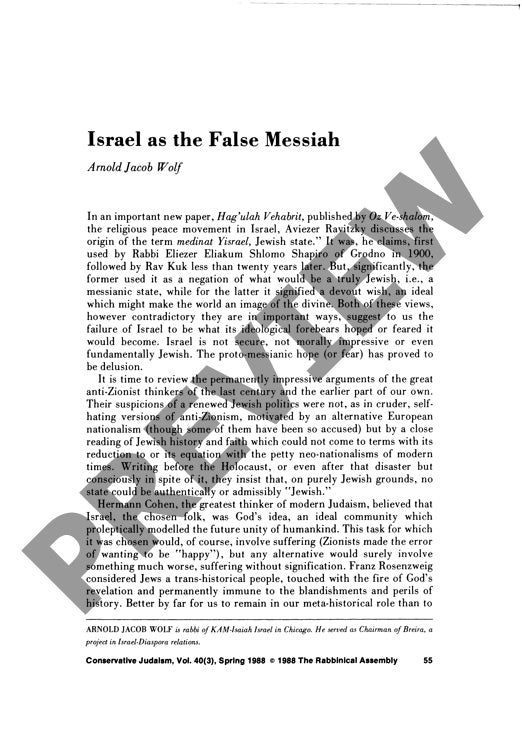Israel as the False Messiah
Couldn't load pickup availability
The dream of Jewish statehood has evolved from a rejected messianic concept in 1900 to a deeply contested theological battleground, challenging the very foundations of Jewish religious thought. Through historical-analytical examination, this research traces how "medinat Yisrael" transformed from Rabbi Shapiro's warning against false messianism into Rav Kuk's divine imperative. Drawing on the works of Hermann Cohen, Franz Rosenzweig, Martin Buber, and contemporary Israeli scholars, a stark theological incompatibility emerges between traditional Jewish spiritual ideals and modern political nationalism. Israel has fulfilled neither the aspirations nor the fears of its ideological architects, falling short of both security goals and authentic Jewish character. Distinguished Jewish theologians have increasingly compromised their universalist principles to defend Israeli policies, while Orthodox thinkers from Hirsch to the Satmar Rebbe have maintained principled religious opposition to Jewish political sovereignty. Recent events, particularly Israeli actions in Gaza post-1988, validate historical anti-Zionist concerns and demand a fundamental reassessment of Jewish nationalism through the lens of teshuvah and post-Zionist religious responsibility.

More Information
-
Physical Description
-
Publication Information
Published 1988
ISBN
-
Publication Credits
Arnold Wolf

